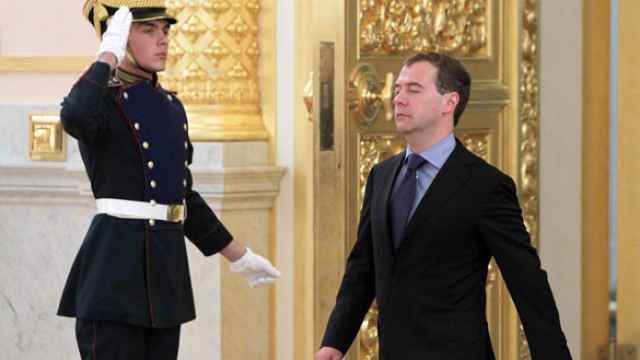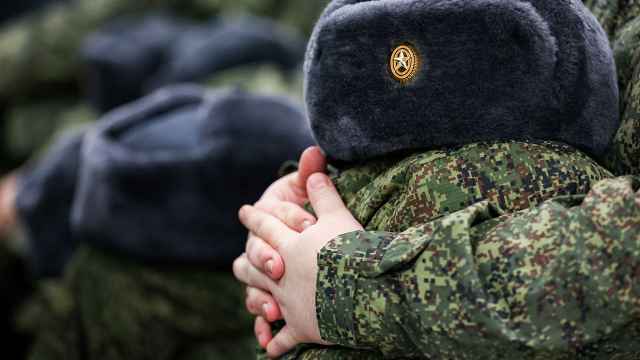President Dmitry Medvedev's chief human rights advisor resigned Friday, saying she was unhappy with the atmosphere in Russia in an apparent blow to Medvedev's efforts to cast himself as a liberal.
Veteran rights activist Ella Pamfilova told Reuters that her resignation was "connected to the general atmosphere in Russia today,” but she declined to elaborate further.
Pamfilova, who was appointed to the post in 2002 under then-president Vladimir Putin, has in recent months voiced sharp criticism of Russia's domestic policies and what she said was the government's failure to engage with civil society.
Medvedev has repeatedly called for more democracy and more government openness with civil society since taking office two years ago, but human rights groups and diplomats said little has changed in practice.
Medvedev's spokeswoman declined immediate comment Friday on Pamfilova's resignation.
Pamfilova, an energetic Soviet-era politician, told European Union officials in March that Russia's democratic institutions were underdeveloped. She said she hadn't seen any significant changes in the sphere of civil rights.
Kremlin critics have said human rights suffered under Putin's presidency. Many murders of activists and journalists, such as the murder of opposition journalist Anna Politkovskaya, remain unsolved, and critics have questioned the state's will to solve them.
Pamfilova said her resignation was not in response to a new law Medvedev signed Thursday boosting the power of the Federal Security Service. She told Ren TV that she had been considering quitting for some time.
The law, which restores a Soviet practice of permitting the security service to issue warnings to people it believes are about to commit a crime, sparked outrage from human rights workers. They said it was aimed at intimidating journalists and the opposition.
Last week Pamfilova, along with a dozen other campaigners including veteran human rights activist Lyudmila Alexeyeva, appealed in an open letter to Medvedev to protect colleagues in Chechnya after Ramzan Kadyrov, the Kremlin-appointed president of the volatile republic, labeled human rights workers “enemies of the state.”
A Message from The Moscow Times:
Dear readers,
We are facing unprecedented challenges. Russia's Prosecutor General's Office has designated The Moscow Times as an "undesirable" organization, criminalizing our work and putting our staff at risk of prosecution. This follows our earlier unjust labeling as a "foreign agent."
These actions are direct attempts to silence independent journalism in Russia. The authorities claim our work "discredits the decisions of the Russian leadership." We see things differently: we strive to provide accurate, unbiased reporting on Russia.
We, the journalists of The Moscow Times, refuse to be silenced. But to continue our work, we need your help.
Your support, no matter how small, makes a world of difference. If you can, please support us monthly starting from just $2. It's quick to set up, and every contribution makes a significant impact.
By supporting The Moscow Times, you're defending open, independent journalism in the face of repression. Thank you for standing with us.
Remind me later.





